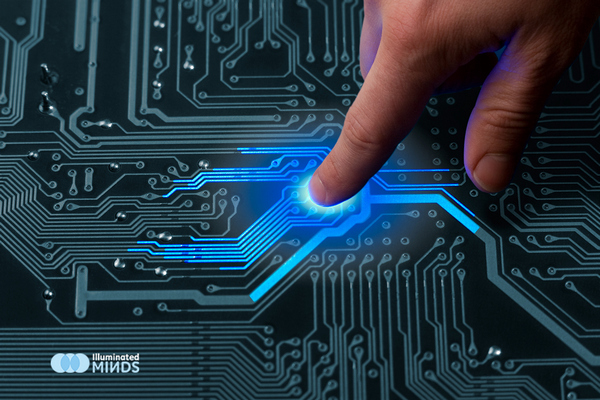Jules Verne said in Around the World in 80 Days: “Anything one man can imagine, other men can make real.” Today, that is truer than ever before. Did you ever think it would be possible to communicate so easily with anyone around the world? Surely not. With what we already know about technology and with what we can imagine, there are limitless possibilities for smart cities and for the marketplace of tomorrow. And while the ideas may seem like a sci-fi fantasy now, the current rate of progress means we’re already on the brink of a totally unexpected future.
While some of the inventions to come might be small-scale, others will revolutionize the way we live. Can you imagine what future technology has in store? Check out the biggest trends that will be kick-started by the LED movement.
From health to communications, LED is a key to new scientific discoveries
In the age of the Industrial Internet, smart cities all over are developing connected LED streetlights that serve as efficient data collection and transmission networks. For environmental researchers, this is the perfect way to gather data on airborne urban toxins. LED technology is a major advance in environmental monitoring.
And how can they do it? Researchers can interpret small variations in the colour and temperature of the air to tell exactly what type and how much of any given pollutant is in the air. And with that information in hand, they can help cities to seriously reduce their environmental impact on a larger scale.
What’s more, it’s not just the environment that could be healthier thanks to LED lighting. Individual citizens will use wearable technology to interact with the streetlight network. Your personal medical data could be gathered, enabling your doctor to better diagnose your health, and assist city leaders to better promote health initiatives. Smartwatches and smartphones will track your heart rate, body temperature and even heart arrhythmia. Your doctor will be able to tailor your medical treatment to your body’s exact, increasing the efficacy of treatments and lowering the risk of adverse effects.
From health to communications, LED is a key to new scientific discoveries. In the field of quantum computing, researchers are now looking to use photons to create the next generation of computers, millions of times faster than machines are now.
 |
|
Li-Fi and other smart lighitng technology will become increasingly important in the future. |
In a study published in Nature Photonics, University of Utah researchers developed an ultracompact beam splitter, capable of dividing light waves into two separate channels of information. With this technology, the team hopes to rule out the need for electron transmission – the process used by today’s computers – which is much slower than light speed.
The benefits go far beyond faster processing. The new beam splitter will make silicon photonic chips possible, and researchers expect that shuttling photons instead of electrons will consume far less power, generate less heat, and result in much longer battery life.
More powerful Data transmission for the Big Data
And what about Wi-Fi? Once again, light is the answer. Current wireless technology uses the radio frequency spectrum, with its relatively large, slow-moving waves. This means the bandwidth and the data storage capabilities are limited and subject to interference. As the global mobile data needs continue to skyrocket, we need something new, something faster.
The alternative is Li-Fi, a form of optical wireless communication using visible light, infrared and near-ultraviolet frequencies to carry much more information at literally the speed of light. Developers are using LEDs as photodiodes to create integrated lighting networks that can transmit data virtually wherever there is light.
In the smart city of the future, we’ll have wireless Li-Fi coverage anywhere a streetlamp shines.





 CN
TW
EN
CN
TW
EN






